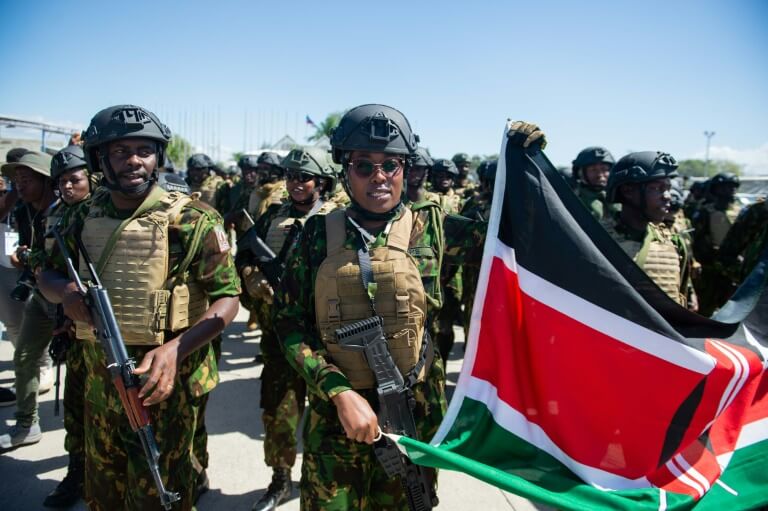|
LISTEN TO THIS THE AFRICANA VOICE ARTICLE NOW
Getting your Trinity Audio player ready...
|
A contingent of 144 Kenyan police officers landed in Haiti’s capital on Thursday, February 6, 2025, as part of a multinational effort to stabilize the gang-ridden country. Their deployment, however, comes at a time of uncertainty, with the mission’s future hanging in the balance after a U.S. funding freeze complicated its operations.
The United Nations-backed security initiative, approved by the U.N. Security Council but not directly led by the global body, was launched to combat the growing dominance of heavily armed gangs in Haiti. These groups, equipped with weapons largely smuggled from the United States, have taken control of most of Port-au-Prince and large parts of the country’s agricultural regions. The security force, however, remains significantly under-resourced, relying on voluntary contributions from participating nations.
The mission faced a new challenge this week when the U.S. froze over $13 million in funds that had already been allocated to the U.N.’s dedicated security fund. The move was part of U.S. President Donald Trump’s broader 90-day pause on foreign aid, which sparked concerns that the already fragile mission could collapse. However, in a last-minute decision, U.S. Secretary of State Marco Rubio approved a waiver allowing the release of $40.7 million in assistance for Haiti’s National Police and security forces. Notably, this funding will not be channeled through the U.N. fund, raising questions about how it will be managed and whether it will reach the mission on the ground.
Speaking from Santo Domingo, where he met with Dominican Republic President Luis Abinader, Rubio acknowledged that the current mission was insufficient to resolve Haiti’s crisis. “The solution for Haiti is in the hands of the Haitian people, in the hands of the Haitian elite,” he said. “But we will help. We cannot ignore the problems there.”
Haiti has been gripped by relentless gang violence that has displaced record numbers of people. While many have sought refuge within the country, others have fled across the border into the Dominican Republic. This migration has heightened tensions with the neighboring nation, prompting President Abinader to implement a crackdown on Haitian migrants. In recent months, his administration has ramped up deportations, sending an estimated 10,000 people back to Haiti every week.











LEAVE A COMMENT
You must be logged in to post a comment.